World at his feet: The ‘lost boy’ who became a humanitarian in South Sudan
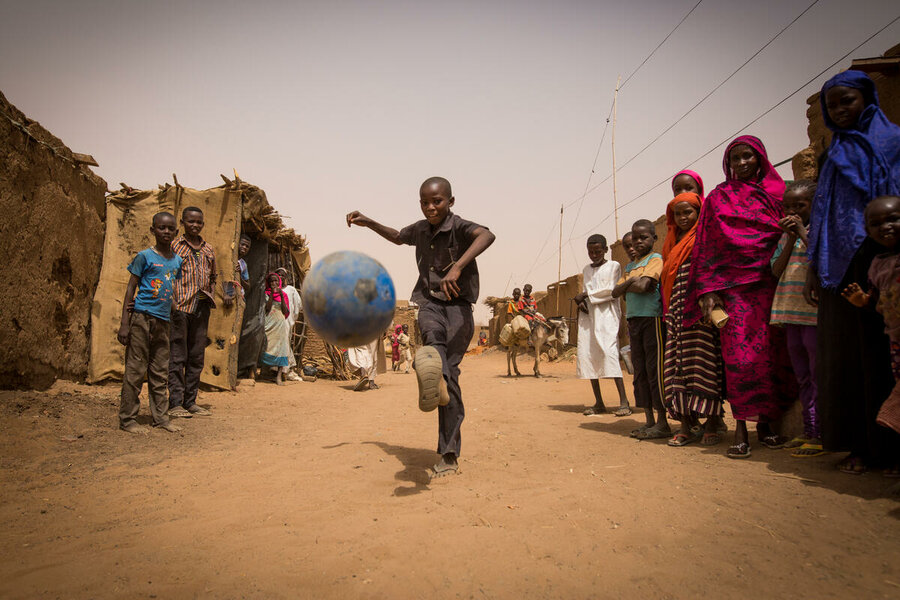
This article complements the Annual Partnership Consultation 2021, an event that WFP organizes annually to discuss strategic priorities and coordinated activities with its 800+ international and local NGOs partners
“My first memories of the World Food Programme as a child are the cars driving through the streets of Kakuma refugee camp,” says Elijah Manyok Jok – vehicles emblazoned with the blue letters, WFP. “I remember me and my friends running around those cars, asking for bottles of water. Back then we didn't see those bottles very often so they were very precious to us. Those cars gave us hope that something good was coming our way and that, one day, we too would be driving one of those cars. That was the only hope a refugee child could have at that time.”
The 34-year-old from Bor, a city on the eastern banks of the White Nile river in South Sudan, is the founder and chief executive of an NGO called the Smile Again Africa Development Organization and leading a humanitarian figure in his own right.
The South Sudanese storyteller: This is what life is really like for refugees
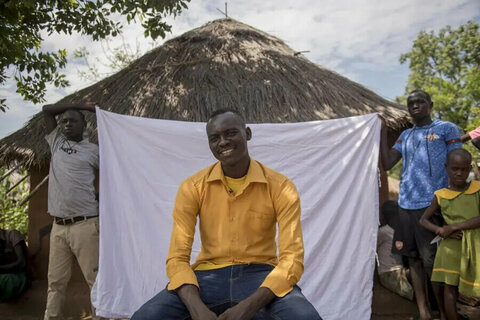
In the early 1990s, the second Sudanese civil war stormed the southern regions of the country, bringing terror and massacres.
Elijah left Bor, seeking refuge in the bushes of Eastern Equatorial state – starting a journey that landed him in the very sort of cars he once chased, as a WFP field monitor.
“I spent three years within the war zones and bushes of southern Sudan, wandering before joining the rest of the unaccompanied minors who later became known as the 'lost boys' of Sudan,” he says.
Elijah and other 20,000 children, from the rural region of what was then southern Sudan were displaced or orphaned during the war. The lost boys embarked on perilous journeys to the nearest refugee camps in Ethiopia and Kenya where thousands had been sheltered for a number of years.
Struggling to survive, they became easy targets for the armed groups — many, including Elijah, were recruited as child soldiers. In 1994, at the age of 7, Elijah managed to escape and cross the border to Kenya. After days of walking, he arrived at Kakuma refugee camp.
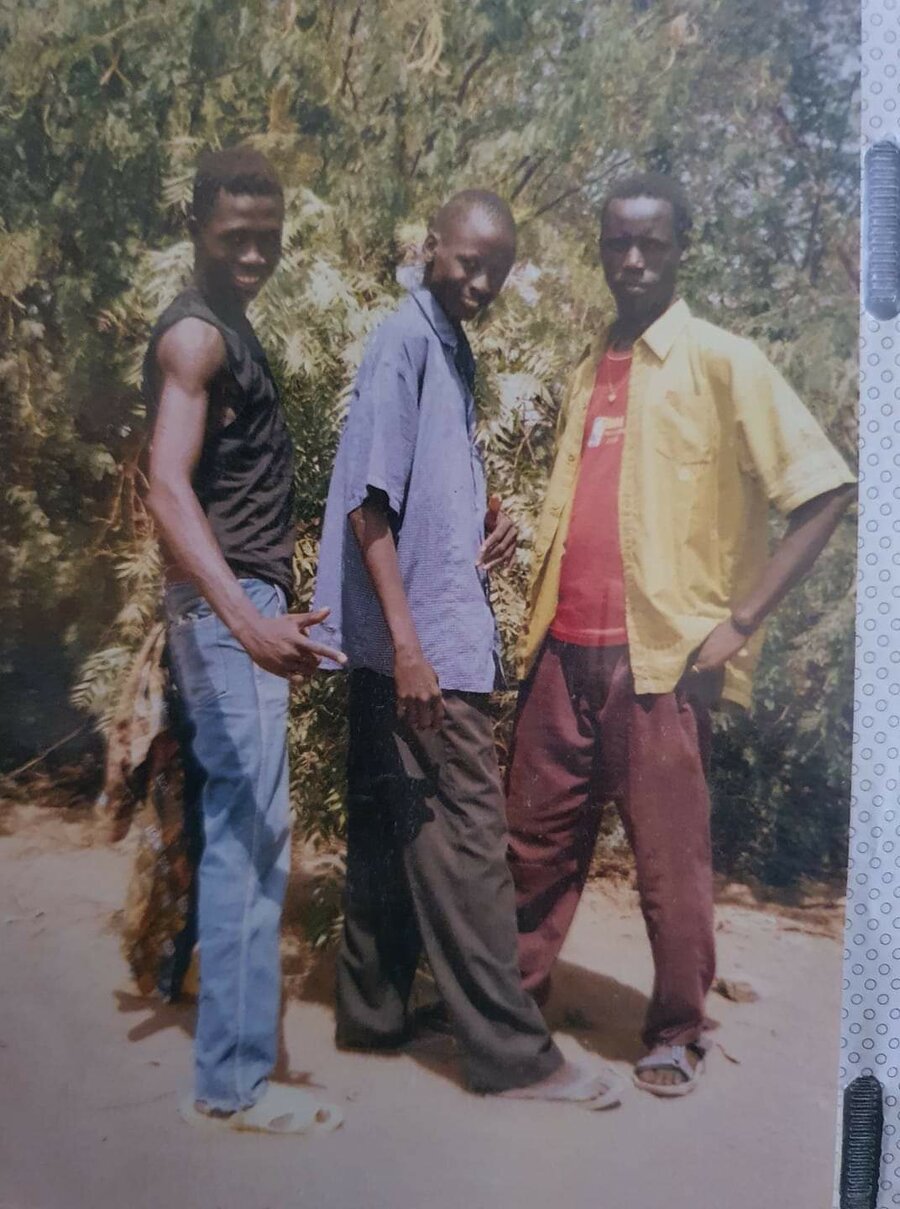
Growing up in Kakuma
“At first, they divided us into groups, I shared a shelter with other boys I never met before,” he says. “Then, with time, I found relatives and family friends and moved in with them”.
Then there was the issue of meals.
“Sometimes it was hard to live with just the food ration each of us received from WFP. It became easier with time when we joined efforts and shared the rations as a family. Many of children arriving at the camp presented signs of malnutrition. School meals however, proved a vital source of sustenance."
“[They] saved us from malnutrition and changed our lives," says Elijah. "When there were ration cuts, the school was completely empty. Kids cannot stay at school until 6pm without eating and go back home with an empty stomach.”
In early 2000, the project to resettle the lost boys of Sudan brought new hope in the camp. Some 3,000 children made it to the US. “I was excited about the idea of going to the US. I was ready to start a new life and continue my studies,” says Elijah. But then came 9/11. “Everything changed, the programme was completely shut down, as well as my hope. Kakuma remained my home for the following seven years.”
The civil war finally ended in 2005 with the signing of the Comprehensive Peace Agreement. Elijah requested to be resettled in South Sudan.
In 2007, Elijah flew back home on a UNHCR flight. He settled in Bor, where he was finally reunited with his parents.
He enrolled in at online university to pursue a degree in business administration. Upon graduating in 2010, he received a call from WFP offering him a position as field monitor.
“There was a strong calling in me to step up and help my people help themselves,” he says. “I was a product of humanitarian efforts myself after 13 years of being a refugee, totally relying on humanitarian assistance for my food, water, shelter, protection, and education. all basics of life. I was therefore indebted to humanity and saw this as an opportunity to give back.”
And there he was, from the other side of the bulletproof window of a WFP car, looking at kids running along as his country was screaming out loud for independence.
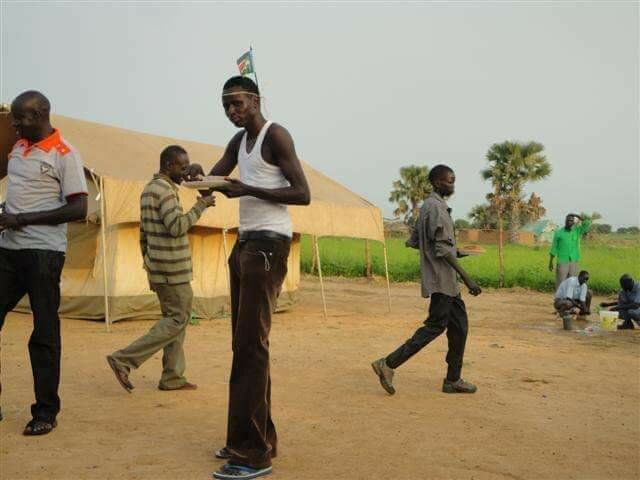
“I was still working with WFP when South Sudan got its independence [in 2011]. I have wonderful memories. I was at the border with Sudan when we received the news, it was a mix of joy, shock, and disbelief. We celebrated all night, and I was the star of the party, being the only one carrying a South Sudanese flag”.
Airdrops to fight famine
After three years at WFP, Elijah broadened his experience by working with international NGOs such as Save the Children and Catholic Relief. “It was a great experience. It helped me understand how a big NGO is managed,” he says.
He then supported a group of friends founding Smile Again Africa. Since 2014, the year of a disastrous food crisis in South Sudan, he has been working full time with Smile Again Africa, which has been partnering with WFP to deliver food assistance and implement feeding programmes.
“I remember the struggles to reach the ones in need in 2014. There was no access, no roads, [a] high risk of being ambushed. That is when WFP started dropping food from the sky. I’ve been very vocal about the need for airdrops.”
Air drops are a last resort for WFP as they cost seven times more than delivering by road.
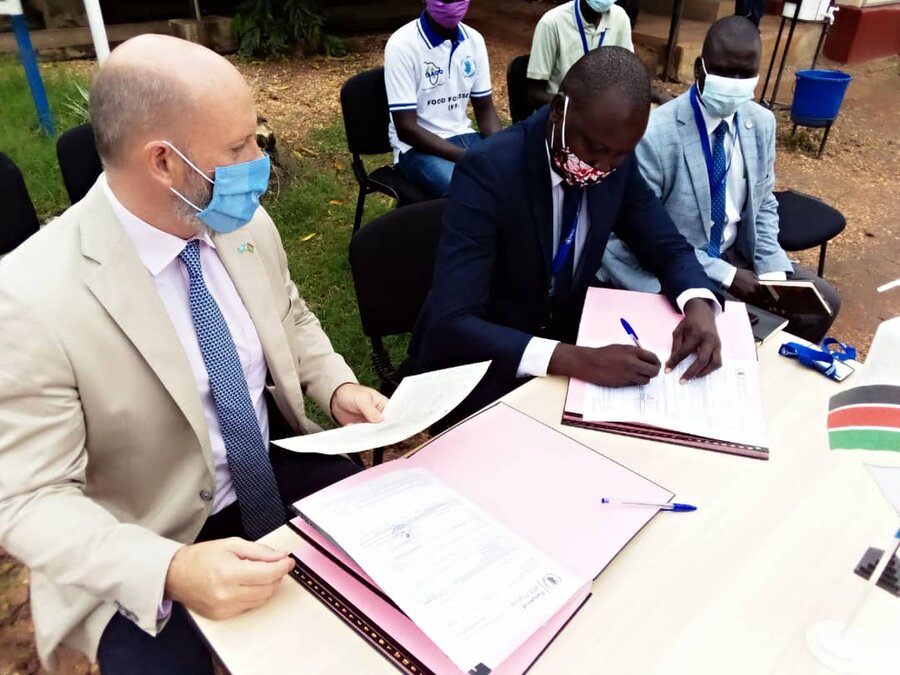
With time, Elijah transformed Smile Again into a solid, national NGO focusing on food security, livelihoods, gender, education, and nutrition.
“When I joined as the new CEO of SAADO, the organization had only one office, seven staff and one computer and the first project was funded by WFP for US$19,000. Now we have 9 offices, around 600 staff members and a yearly budget of between US$9 million and 11 million.”
Elijah doesn’t miss any opportunity to join forums and events WFP organizes for its NGO partners.
“These consultations have really helped shaped SAADO leadership. It helped us create a bigger network and get in contact with international actors.
“When I met [WFP chief executive] David Beasley in Rome, I told him that in my life I have been dealing with WFP in almost all possible ways: I’ve been a beneficiary, I have been a staff member and now I am a partner. I am just missing becoming a donor…. we will see about that!”
